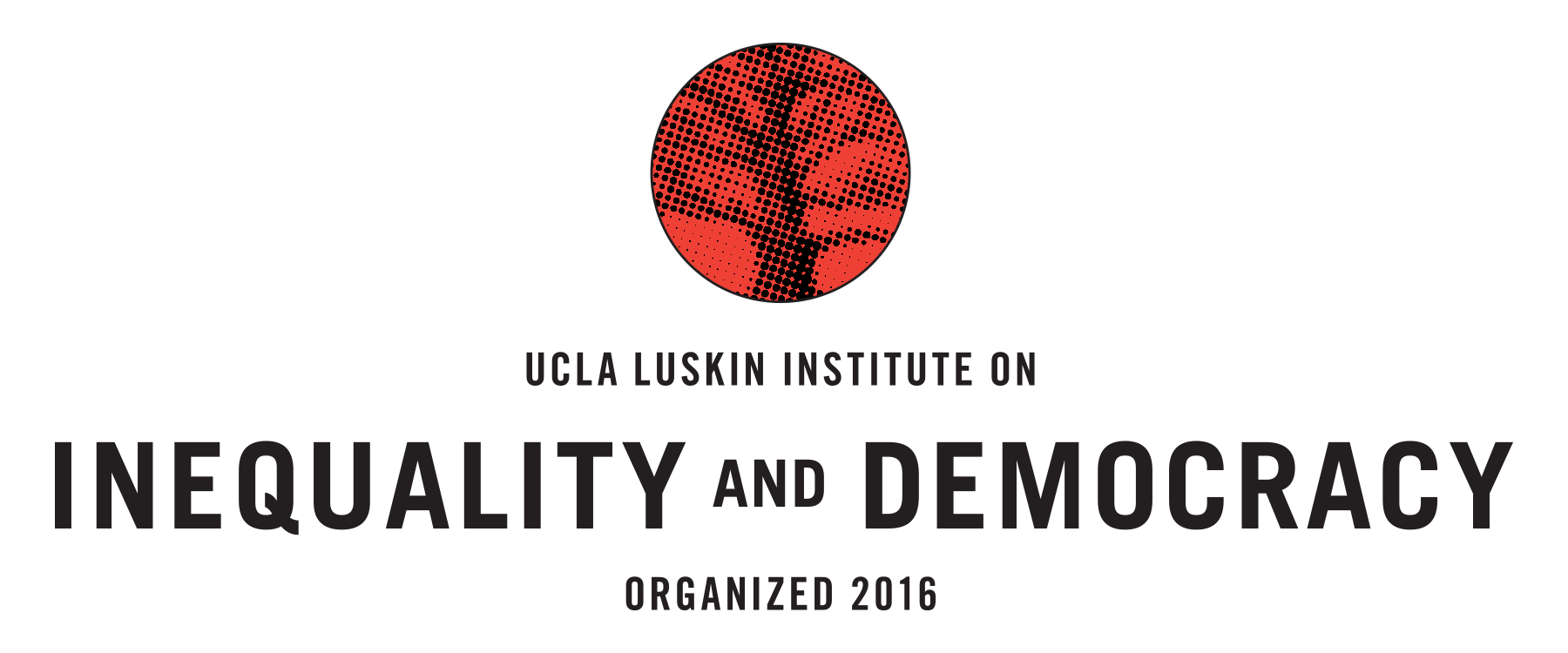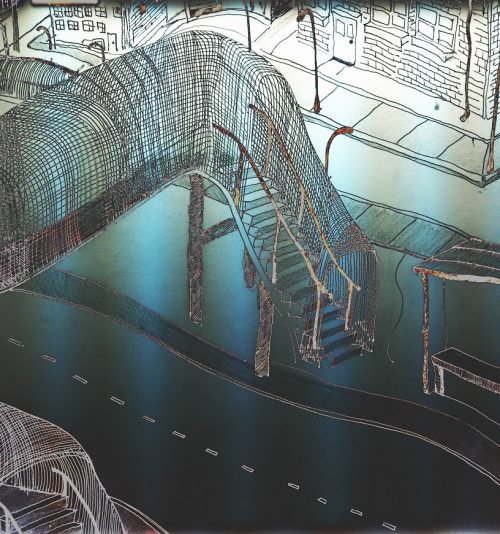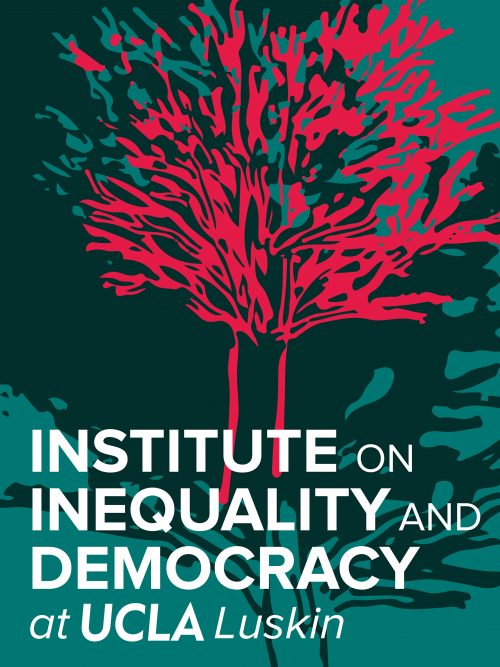Mission Statement
The UCLA Luskin Institute on Inequality and Democracy advances radical democracy in an unequal world through research, critical thought, and alliances with social movements and racial justice activism. We analyze and transform the divides and dispossessions of our times, in the university and in our cities, across global South and global North.
East Liberty Busway Station by Eden McNutt
Scope and Purpose
In 1903, W.E.B. Du Bois wrote that “the function of the university is not simply to teach breadwinning, or to furnish teachers for the public schools, or to be a centre of polite society; it is, above all, to be the organ of that adjustment between real life and the growing knowledge of life, an adjustment which forms the secret of civilization.” For Du Bois, the problem of the 20th century was “the problem of the color-line.” It is knowledge of the color-line, and action against it, that formed his life’s work, both in the university and in the world.
Drawing inspiration from Du Bois and other black radical and postcolonial thinkers, the UCLA Luskin Institute on Inequality and Democracy aims to understand and transform the divides and dispossessions, the color-lines, of the 21st century. At a time of unprecedented income inequality in the United States, we join the growing effort for rigorous analysis of the processes through which such inequality has been produced, that recognizes the corrosive effects of the warehousing of wealth and power on civic life, and that seeks to undo such inequality through new frameworks of redistribution and democratic politics.
In such work, we think across North and South. Instead of the United States as the intellectual pivot of our work, we forge lines of inquiry that take serious notice of the postcolonial world, notably democracies shaped by the claims and demands of poor majorities. Drawing on ideas and practices produced in the unequal cities of India, Brazil, and South Africa, we return to the North Atlantic to examine and dismantle economic austerity and entrenched segregation.
Our research, theory, and pedagogy are produced in the context of resurgent right-wing nationalism, both in the United States and in many other parts of the world. In the age of Trumpism, we have renewed our commitment to challenge white racial domination and build black and brown power.
The University of California is an especially propitious home for our institute. Like liberal democracy itself, the public university at once bears the promise of inclusion and manifests the persistence of exclusion. The public university has an intimate relationship with the “real life” of which Du Bois wrote, and we believe that this intimacy generates a responsibility for public affairs and an impulse to educate a next generation for whom citizenry is not an enclave of privilege but rather shared and collective existence amidst difference.
About the Artwork
Meditation in the Park by Eden McNutt
The work of Pittsburgh and Arizona-based artist, Eden McNutt, seeks to capture the shadow of this moment in history. It is in the shadow of this moment, with its heartbreak, with its anger, with its call to action, that we take up the questions of inequality and democracy. At such a moment, what is the politics of hope that is possible? What is the politics of hope that is necessary? This is an important puzzle for the Institute as we engage in our research, our public programs, our community-based partnerships, and our contributions to teaching. Our logo aims to express this puzzle as the bright, defiant tree and the dark shadow it casts.
— Ananya Roy, Founding Director of the UCLA Luskin Institute on Inequality and Democracy



